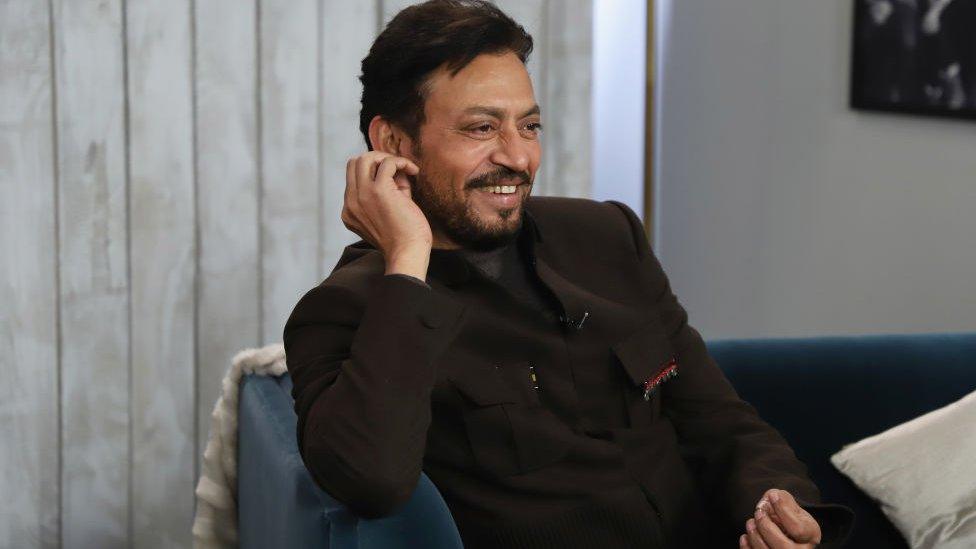Soumitra Chatterjee: India acting legend dies, aged 85
- Published
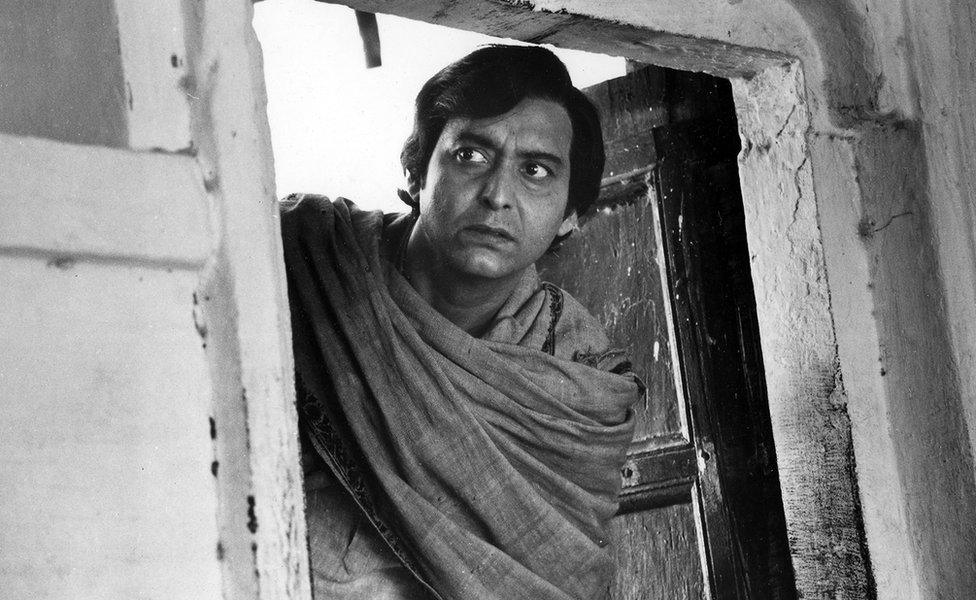
Chatterjee played a Sherlock Holmes-like detective in Satyajit Ray's films
Legendary Indian actor Soumitra Chatterjee, famed for his work with Oscar-winning director Satyajit Ray, has died from Covid complications.
The 85-year-old actor was admitted to hospital in Kolkata city on 6 October after he tested positive for the virus.
He will be mourned by fans and critics who avidly followed his six-decade-long career in Bengali language films.
Chatterjee, who starred in more than 300 movies, was also an accomplished playwright, theatre actor and poet.
He tested negative a few weeks after he was admitted to hospital but his condition soon deteriorated and he was put on a ventilator in the last week of October. He died on Sunday morning.
Chatterjee was perhaps best-known for his work with Ray, one of the world's most influential directors and maker of the much-feted Apu Trilogy. The series followed the life of a man who grew up in a Bengali village. The films garnered critical acclaim, winning many awards worldwide, and put Indian cinema on the global map.
The third movie of the trilogy, Apur Sansar, which released in 1959, was also Chatterjee's debut film. He would go on to star as the lead actor in 14 of Ray's films.
Pauline Kael, one of America's most influential and respected film critics, called Chatterjee Ray's "one-man stock company" who moved "so differently in the different roles he plays that he is almost unrecognisable".
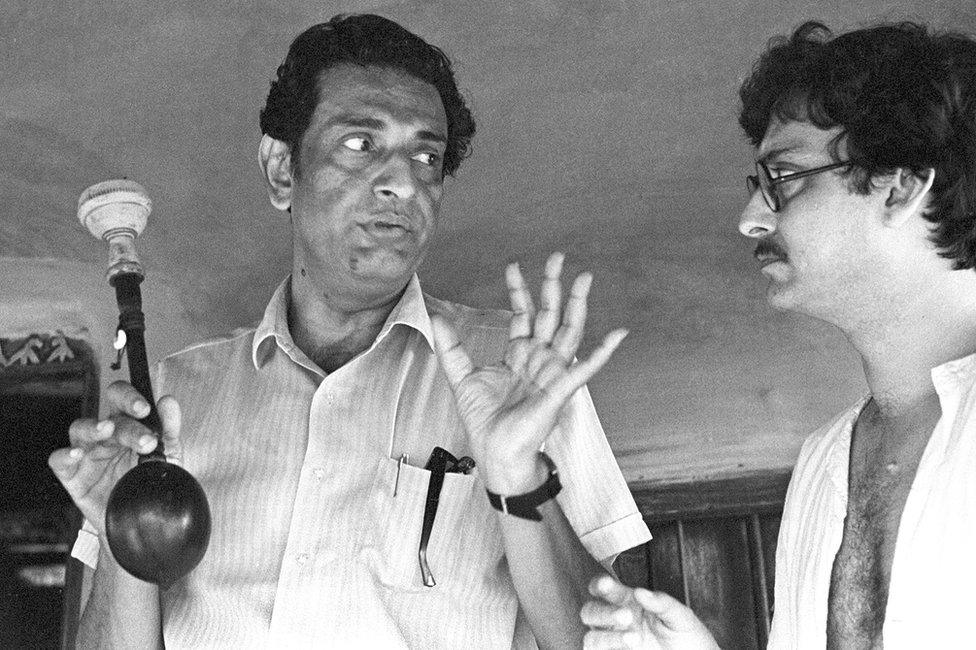
Ray (left) cast Chatterjee (right) in 14 films
Chatterjee was awarded the Dada Saheb Phalke Award, the highest honour in Indian cinema, in 2012 and in 2018, he was given France's highest award, the Legion of Honour.
He began acting when he was in school, where he starred in several plays. He was in college when a friend introduced him to Ray - it was a chance meeting, but it eventually led to Chatterjee's film debut.
"I didn't know what to do when Mr Ray first asked me. I didn't know what was the real difference between stage and screen acting. I was afraid I'd overact," he told Marie Seton, film critic and biographer, in an interview.
Chatterjee's roles in more than a dozen films made by the auteur spanned a wide range.
He played a Sherlock Holmes-like detective in Sonar Kella, an effete bridegroom in Devi, a hot-tempered north Indian taxi driver in Abhijan, a city slicker in Aranyer Din Ratri, and a mild-mannered village priest in Ashani Sanket. He also played what Seton called a "thinly veiled portrait" of Nobel Prize-winning poet Rabindranath Tagore in Charulata, one of Ray's most admired films.
"His chief asset was the natural sensitivity of his appearance," Seton wrote of the actor.
Ray mentored his favourite actor, lending him books on cinema and often taking him to watch Sunday morning shows of Hollywood films in Kolkata. "The entire exercise he did with a purpose, it was not as if he was taking me out on Sundays for entertainment," Chatterjee once said.
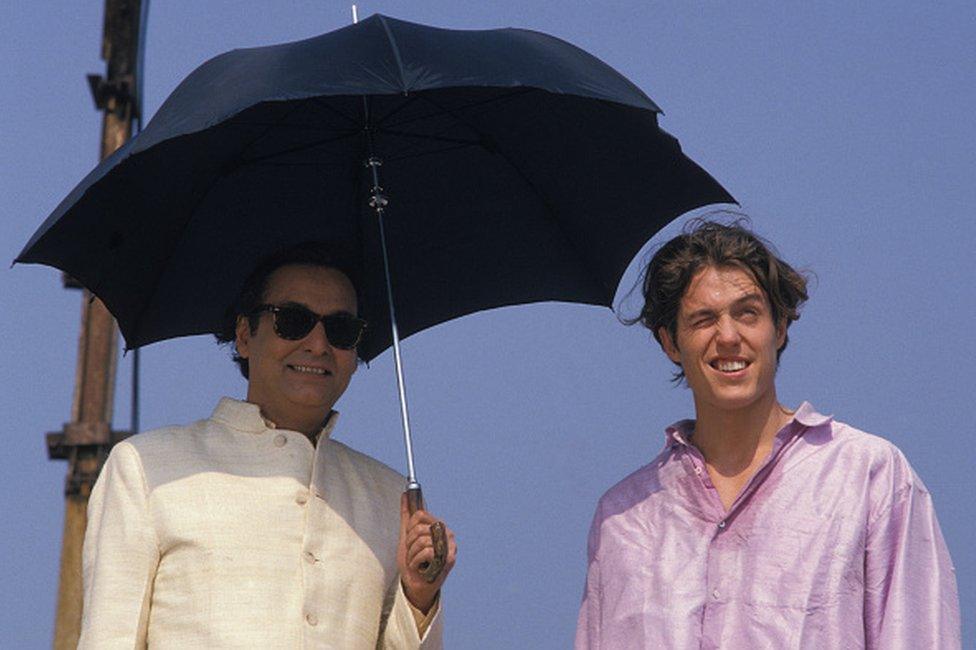
Chatterjee acted with Hugh Grant in a 1989 film set in Calcutta
Ray, who died in 1992, had said that Chatterjee was an intelligent actor and "given bad material, he turns out a bad performance".
"Not a day passed when I do not think of Ray or discuss him or miss him. He is a constant presence in my life, if not for anything else but for the inspiration I derive when I think about him," Chatterjee told an interviewer.
Chatterjee also played the romantic lead in popular Bengali films, but his appeal, say critics, was more limited than the reigning star, Uttam Kumar.
Over the years, Chatterjee worked with leading directors like Tapan Sinha, Mrinal Sen, Asit Sen, Ajoy Kar, Rituparno Ghosh and Aparna Sen. In 1988, he worked with John Hurt and Hugh Grant in The Bengali Night, a film set in Kolkata.
Adoor Gopalakrishnan, one of India's greatest filmmakers, said that on screen, Chatterjee "became the quintessential Bengali - intellectually inclined, of middle-class orientation, sensitive and likeable".
Witness: Apu Trilogy
Outside films, Chatterjee was tirelessly creative: he edited a literary magazine, published more than 30 books of essays and poetry; acted, directed and wrote an equal number of plays; and painted.
One of his most successful plays, Ghatak Bidey, a comedy, ran for 500 nights. Chatterjee acted in a commercially successful Bengali adaption of King Lear, which many believe was one of his finest performances on stage.
For all his popularity, Chatterjee stayed away from Bollywood, preferring to act in Bengali language films.
"Soumitra is the finest actor in the land today, but totally unheard of outside Bengal. It's a loss for India, Bollywood and I guess, a bit for Soumitra," Pritish Nandy, poet, journalist and filmmaker, said of the actor in 2012.
Amitava Nag, author of a biography of the actor, says Chatterjee was "the thinking man's hero. He was an intellectual and a poet".
Nag once asked Chatterjee whether he felt burdened by the obligation to entertain.
"Very seldom. This is my job," he said.
- Published16 September 2015
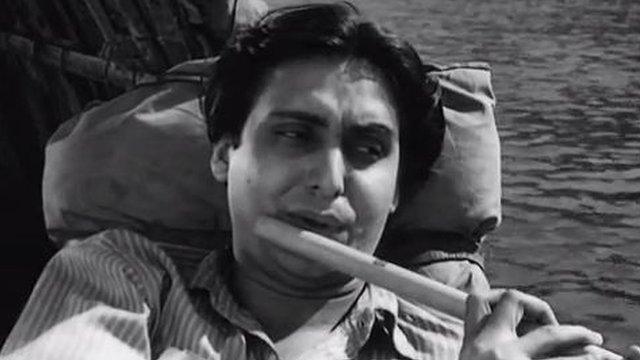
- Published29 April 2020
